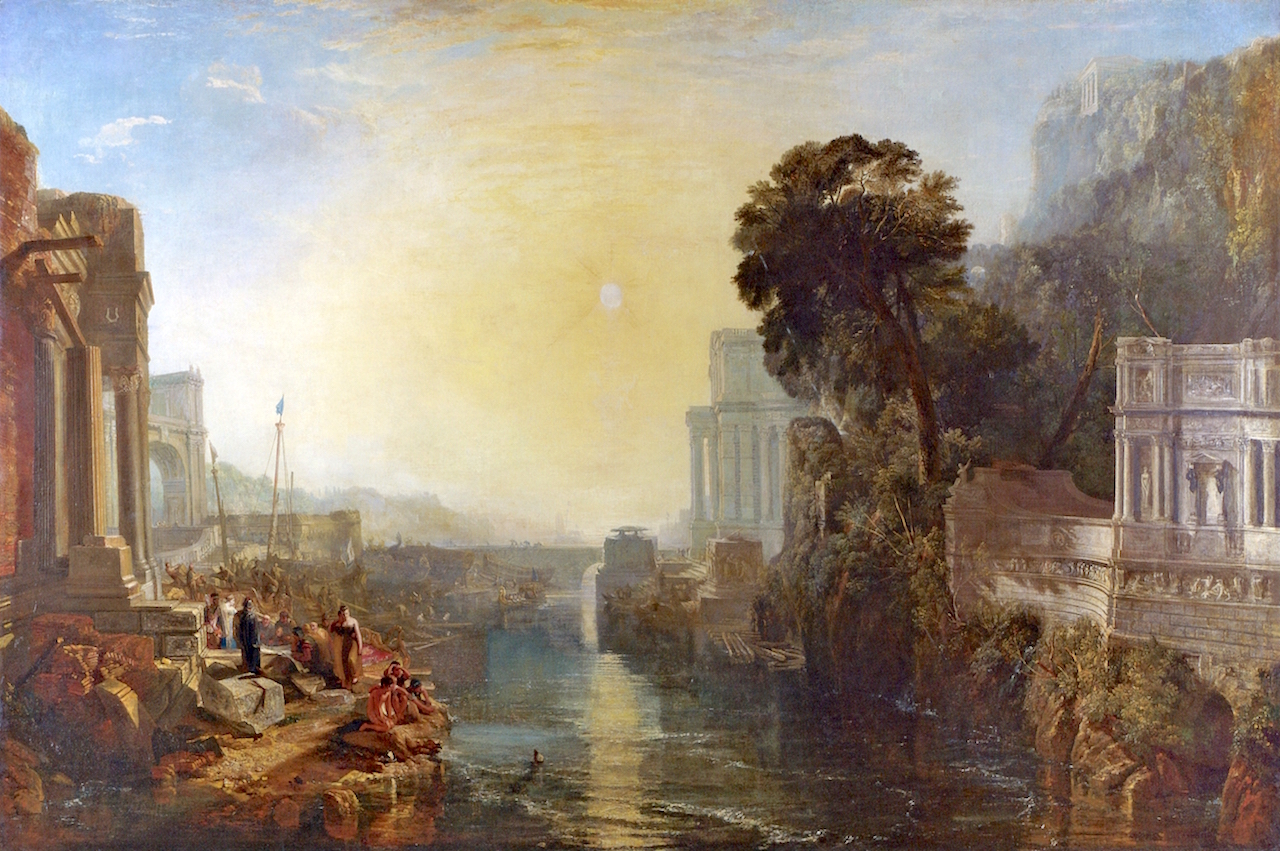When somebody asks me, “What should I start with if I want to try listening to opera?” I usually answer, “Listen to Purcell’s Dido and Aeneas.” It is incredibly beautiful, relatively short, and surprisingly understandable.
We can easily understand Dido and Aeneas thanks to its English-language libretto as well as its Romantic spirit. Henry Purcell was ahead of his time: in the 1680s, he felt the moods of the nineteenth century, not so distant from us. In his opera, the composer created an image of a suffering person, surrounded by indifference and evil.
Both Sadness and Joy
You perhaps doubt whether it’s worth paying attention to an old piece based on an antiquated plot.
Please don’t leave this page right now. Take just a couple of minutes to listen to the overture of the opera:
Are you still here? I think yes. 🙂
The overture is clearly divided into two parts.
At first, the melody flows slowly. Sad and questioning, it is similar to a plea.
At about the middle of the second minute, the tempo sharply changes; the music becomes joyful. Its exciting pulsation evokes vivid mental pictures resembling the sunny paintings by the Romantic artist Joseph Mallord William Turner – the sun rising through a haze, a ship rushing in full sail to uncharted shores…
The main character of the opera is Dido, the Carthaginian Queen. Once, unknown ships arrived in her country. As it turned out, these were the Trojans. Their city was captured and burnt. Led by prince Aeneas, they escaped. The Trojans sailed for Italy to restore their ruined city there until a fierce storm threw them off course.
Dido welcomed Aeneas’s storm-torn fleet. Soon she fell in love with the prince and it’s obvious that her passion is mutual.
Unhappy Mutual Love
The opera opens with a scene in the court. Dido’s attendants are aware of the gentle feelings between their ruler and the Trojan hero; they look forward to the wedding. Meanwhile, the Queen herself is tormented by a premonition of tragedy.
Dido’s exquisite singing is not in harmony with her courtiers’ jerky phrases. Nobody attempts to take her dismay seriously and even her friend Belinda chirps happily about a “growing empire” and “flowing pleasures” instead of taking an interest in what really worries Dido.
The Queen, suffering from love, knows that Aeneas is no more than her random guest. He is destined to create his own city far from Carthage.
The prince enters the hall to ask for Dido’s hand. She tries to reject the proposal by saying, “Fate forbids what you pursue.” To her, “fate” isn’t just a word. Characters of ancient myths perceived it as a real, irresistible power. Even omnipotent Zeus, the supreme Greek deity, sometimes wasn’t able to confront it.
The prince answers, “Aeneas has no fate but you.” Of course, Dido can’t help submitting to his advances.
They spend the night together.
Witch Tricks
Dido has an archenemy – the Sorceress. Along with her minions, she plotted against Dido. They decided to send a trusted elf disguised as Mercury and call Aeneas away to his glorious future – recreating Troy on Latin ground.
The music that accompanies the conspiracy sounds cheerful and rude – it is close to the so-called catch, a folk genre that originated in English pubs. Performing a catch, several people repeatedly sang the same beginning at different times. Purcell shows the devilish company as a crowd intoxicated with cruelty. All these characters, including the Sorceress and the elf, are devoid of any individual traits. This is a faceless all-pervading evil.
Choirs of witches and imps starkly contrast the Carthaginian Queen’s arias, yet they resonate well with choral fragments in which her anonymous courtiers rejoice at the union of Dido and Aeneas.
The dirty plan worked out brilliantly. “Mercury” tells Aeneas to leave Carthage that tonight.
Aeneas is shocked by the gods’ demand. The prince is sincerely sorry for Dido but quickly agrees to do what is required of him. New adventures and accomplishments await the Trojan hero.
Logically, Aeneas’ conversation with false Mercury should have been followed by the main male character’s splendid aria. Purcell does not write anything like that. It seems that the image of Aeneas does not captivate him at all. From the beginning to the end of the opera, the composer focuses on creating the image of the key character – Dido.
Malevolent Fate
Aeneas’ farewell to Dido is preceded by the song of the sailors. They sing:
Come away, fellow sailors, your anchors be weighing. Time and tide will admit no delaying. Take a bouzy short leave of your nymphs on the shore, And silence their mourning With vows of returning But never intending to visit them more. Isn't that how our noble hero treats his beloved?
Aeneas bids a difficult farewell to Dido. “To your promised empire fly and let forsaken Dido die,” the insulted Queen says. Aeneas states he will stay despite the gods’ command, however, he hears in response a categorical, “Away!”
Dido is not manipulative at all; she indeed wants the Trojan guest to go away. If Aeneashad once thought of leaving her, the betrayal has already taken place and now it doesn’t matter if he is still here or not.
Aeneas sets off. The wretched Queen performs her last aria, When I am laid in Earth, and kills herself.
Before you listen to Dido’s lament, you may be skeptical of the Carthaginian Queen’s spiritual nobility – committing suicide due to personal love failure, she dooms her country to troubled times.
But as soon as the aria resounds, all skepticism will disappear.
When I am laid in Earth fascinates and enchants the listener with its heavenly purity; it seems to be created outside our vain world.
The opera Dido and Aeneas lasts an hour on average. Initially, it was a bit longer – its acts were preceded by a prologue. The music of the prologue has been lost (it’s good that the piece itself survived at least).
In the 17th century, nobody treated Dido and Aeneas’s score as the score of the most significant early English opera and a masterpiece of the entire Baroque era.
The opera was staged at Josias Priest’s Boarding School for Young Ladies in Chelsea in the late 1680s (we don’t know for sure if this was the premiere) and revived on the London stage in 1700; these performances probably were the last until the late 19th century.
Nowadays, it is regularly presented in the best opera houses. You can find Dido and Aeneas on YouTube in different versions. I would recommend watching the operatic film in which Maria Ewing and Karl Daymond starred.
- Henry Purcell and the London Stage – Curtis A. Price, Cambridge University Press, 1984
- Классическая музыка для всех [Classical music for everyone] – Дина Кирнарская, Москва, Slovo, 2020

